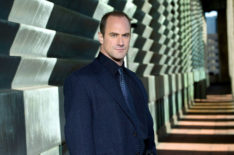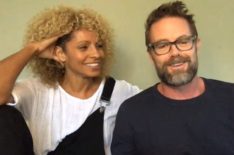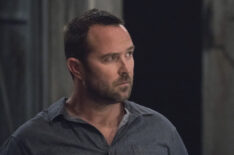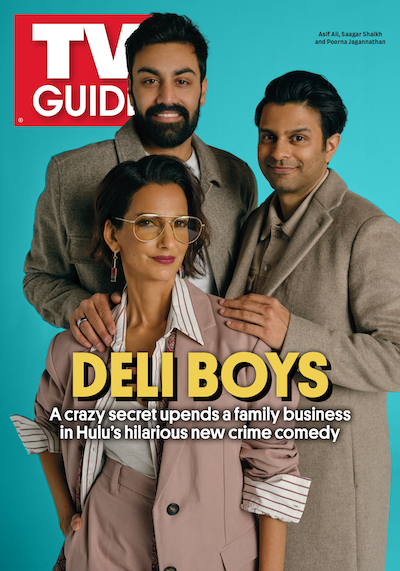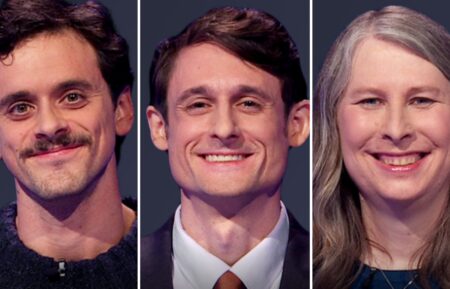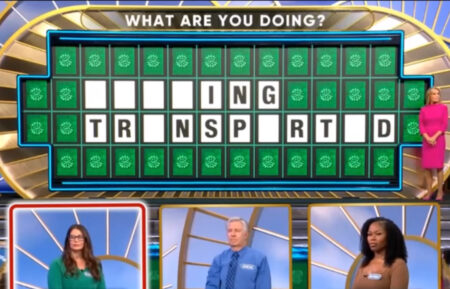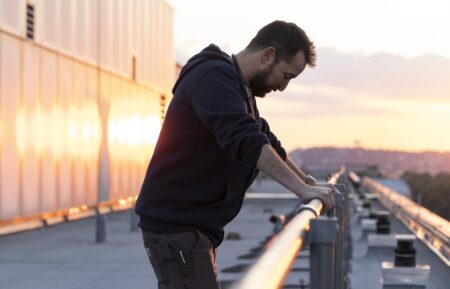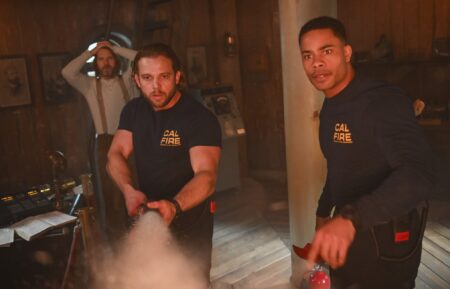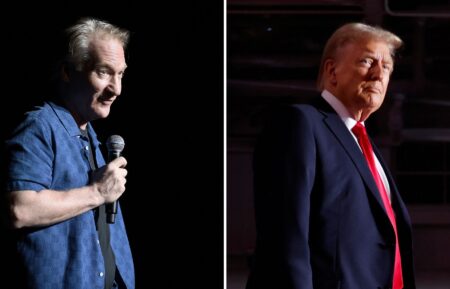‘Blindspot’ Boss on Series Finale Ending: ‘It’s Almost Like a Rorschach Test’
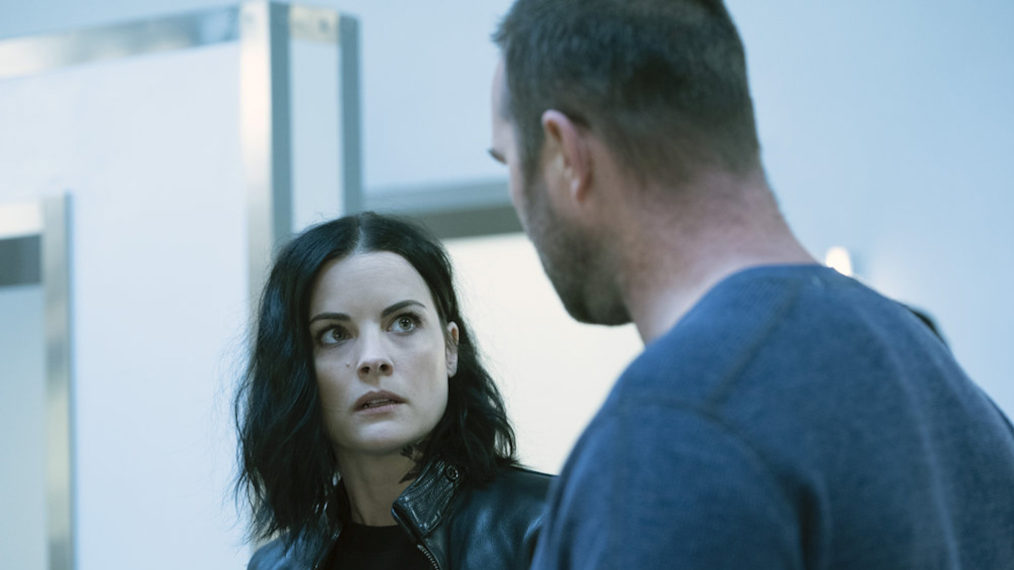
Spoiler Alert
[Warning: The below contains MAJOR spoilers for the series finale of Blindspot, “Iunne Ennui.”]
The 100th—and final—episode of Blindspot was filled with good and bad news and may have left you wondering exactly how it all ended.
While Jane Doe (Jaimie Alexander) was exposed to ZIP, forensic scientist Patterson (Ashley Johnson) had created an antidote, so her mind wasn’t erased (again). But Jane continued to suffer the effects of it: hallucinations, including people who have long since passed, so cue many cameos. (As much as they would have loved to have former Assistant Director Mayfair back, scheduling didn’t work out with Marianne Jean-Baptiste, executive producer Martin Gero says.) Jane was in dire straits because it turned out she needed a lot more of the antidote than they thought due to her prior exposure.
And she couldn’t take it because then she wouldn’t be able to remember the important detail she overheard from mercenary Ivy Sands (Julee Cerda): where she planned to detonate a ZIP bomb.
Jane did figure that out—Times Square (of course), where we first met her, in the duffel bag—and the team defused the bomb in time. But Jane got much worse and needed that antidote ASAP. She got it, and the team said goodbye to the FBI, content in their next steps. Jane and husband Kurt Weller (Sullivan Stapleton) built their family, Tasha Zapata (Audrey Esparza) gave birth to her and the late Edgar Reade’s (Rob Brown) baby and began work as a private investigator, Patterson and former criminal Rich DotCom (Ennis Esmer) planned adventures, and everyone lived, as happy as they could be … or did they?
Kurt noted that in another world, Jane could have died … and we saw Jane being zipped into a body bag in Times Square. But Jane lived … right?
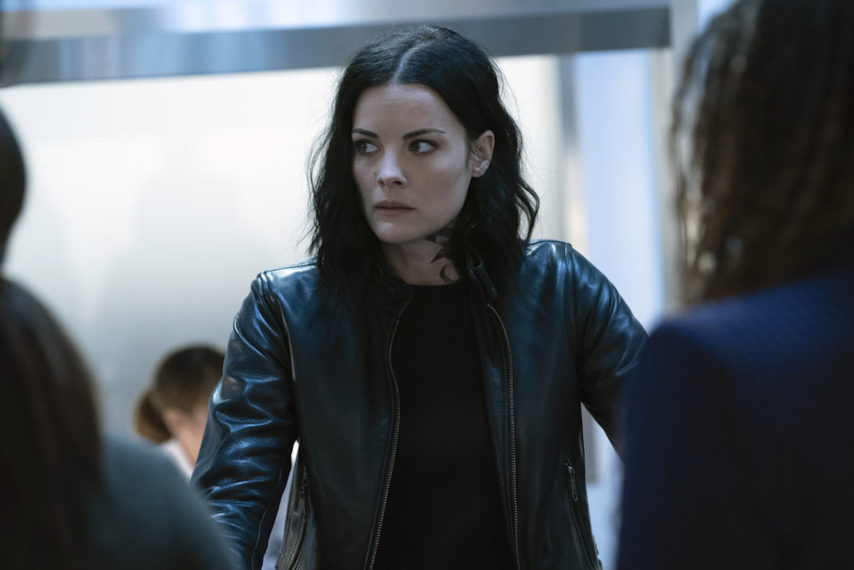
(Barbara Nitke/NBC/Warner Brothers)
TV Insider turned to Gero in hopes of getting the answer.
Can you confirm Jane did live and that other ending just happened in another world?
Martin Gero: I think the ending speaks for itself.
That did allow the series to be bookended with Jane unzipping herself out of the duffel bag and being zipped into a body bag in Times Square. Was that always the plan?
No, it was not always the plan. We had talked a lot about some final images, and that one gained the most traction as the years went on.
Was Jane herself questioning what’s real a continuation of her dealing with the hallucinations earlier in the episode?
It’s really hard, and I’m not being cagey, but I think what’s really amazing about [the end] is everyone that sees it has a completely different interpretation. It’s almost like a Rorschach test, but you kind of see what you want to see in that ending, which is great. That’s what we wanted. I certainly have a strong opinion about what happened, but I would hate for my opinion on that ending to inform or to change someone else’s opinion on what happened.
Did you always know it would come back to ZIP, specifically Jane being dosed and in Times Square?
Yes, we always knew we were going back to Times Square.
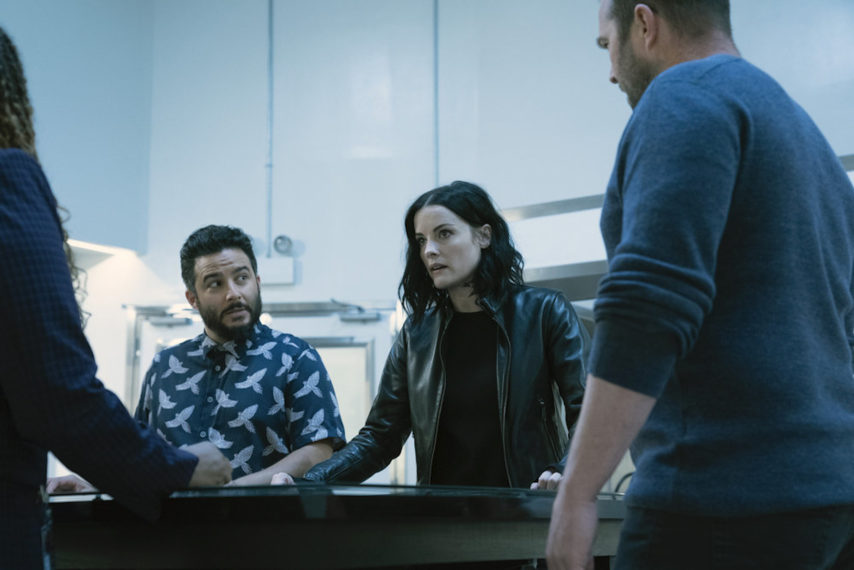
(Barbara Nitke/NBC/Warner Brothers)
And that was the same officer from the pilot, right?
It sure was. What was amazing about the finale was we were able to have over 100 guest stars. The ones that speak, obviously you’ll recognize and see immediately, but there is a guest star from every single episode, every of the 100 episodes that we did, somewhere in the show.
Was that always the plan to bring back these characters through Jane’s hallucinations or were you thinking of another way to bring back at least some in the finale?
Yeah, the idea was always we wanted there to be a roundness to it. For us, as we started talked about the finale in really concrete terms, you make a list of everything you would want to see in the finale, and when we did it, they were all great. Instead of being like, “how do we do a couple of these?” our thinking was, “Can we do it all? Is it possible to bring everyone back? Can we see all of the marriages we want to see? Can we have conversations with all of the characters?” So then trying to come up with a framing mechanism that would allow us to do so in a way that doesn’t feel silly or crazy was the tricky part of it.
Jane’s fight in the cathedral was intense. Can you talk about filming that? Did Jane need one last fight like that?
Yeah, her fights have been a signature part of the show. Unfortunately, the financial reality of these shows is you have less and less money as the years go on. So the cost of doing those fights takes an enormous amount of time, and so we had moved away from them in the last season or two, but we wanted one more great one.
And that one took forever. That had been in the planning for about three or four months because we built that space specifically for that fight. That fight was created between the production design team and the stunt team and the camera department. Then figuring out a way to make it all one shot was incredibly difficult because obviously a lot of very dangerous things happen in there. It becomes almost like a stunt show that you would see at Universal Studios. We throw in every type of thing that can go wrong in a fight, and so that took about a day and a half to shoot that whole sequence.
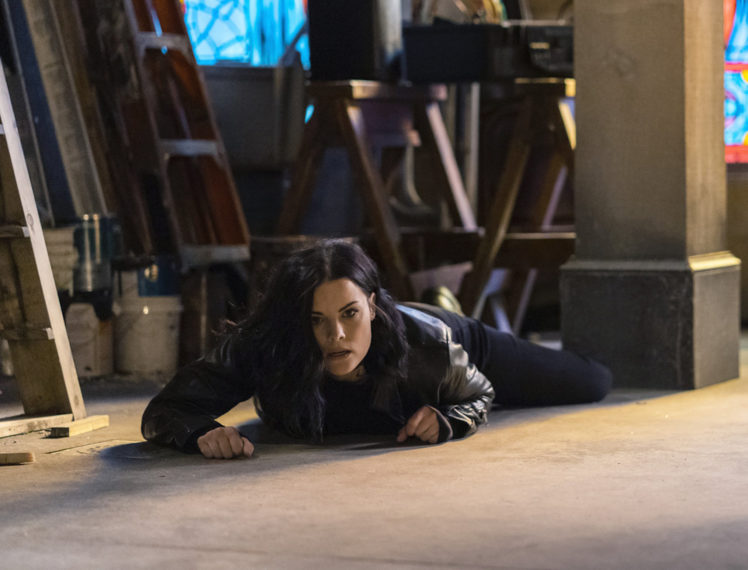
(Scott McDermott/NBC/Warner Brothers)
I couldn’t look away, and I rewatched it a couple times.
Yeah, it’s really exciting, and that is all—I think Jaimie would be OK with me saying this—our incredible stunt double Heidi [Germaine Schnappauf], who’s been with us since Season 2. That is her big swan song, that fight sequence, which was such a physical exertion to do that again and again and again until we got it right.
It was shocking you killed off Madeline (Mary Elizabeth Mastrantonio) before the finale, but even with Ivy out there, that allowed the focus to be on Jane and the team in a way. What went into that decision?
That’s exactly right. We didn’t want the last episode to be about Madeline. We wanted the last episode to be about our team—not that Ivy wasn’t a formidable bad guy, but we wanted somebody that was going to eat less screen time and give us the time we needed to properly say goodbye to these characters.
With Ivy, it felt more about what her plan was than who she was.
Exactly. And also, for us, we’re trying to play with everybody’s expectations as well, so we didn’t just kill her in the penultimate episode, we killed her in the ninth episode, along with Weitz. That episode had a very high body count.
I was almost surprised by how sad I was to see Weitz go, considering I had complicated feelings about that character. But he had such a good ending.
That’s it. He needed a hero’s death to finally be a hero. That character has been on such a twisty road as far as moral redemption, and again, it being the last season really allowed us to make choices like that. We would never do that if we were coming back next year because we love that character in the world, but that’s one of my favorite deaths I’ve ever been a part of it certainly. Aaron Abrams just really did an amazing job with that scene.
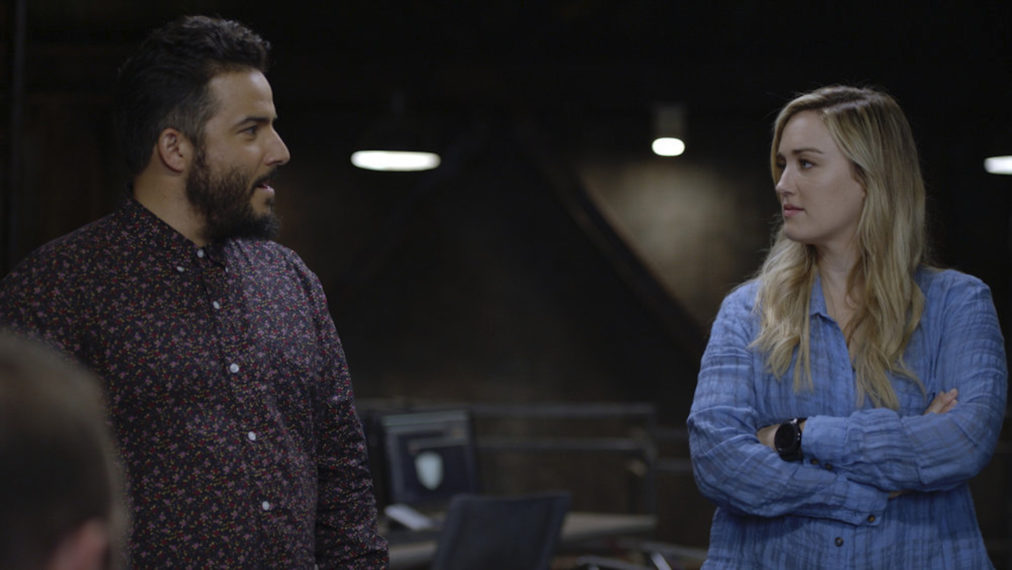
(Warner Brothers/NBC)
I’m glad Patterson wasn’t really dead. It was also heartbreaking seeing the future she could have had with David. What’s next for her? Did she ever adopt a child or are kids in her future?
Again, I don’t want to speak to stuff that’s not in the text. The reason we ended the show this way is it is so open-ended and it’s really up to the fans to continue the story on their own.
In her conversation with Rich DotCom, she seemed to be feeling the best about leaving the FBI.
Oh, yeah. Patterson wanted to quit the FBI in Season 3 and was staying around for her friends. Her and Rich were the most excited to divorce themselves from that world.
I liked Rich’s “oh, this is the last time…” Those two work so well together.
[Laughs] Yeah. They have incredible chemistry. It’d be amazing to do something else with them.
And we also got the emotional beats when he thought she died.
Yeah, I got a lot of hate on the internet for that episode, and fair enough, we didn’t know it was going to air in such a tumultuous time when people were looking for comfort and so it was an intense episode, but this whole season has been about endings and how finite life is. And by removing Patterson for a moment, it really allowed us to properly celebrate her in a way that I don’t know that we would have been able to do.
In a way, Jane and Kurt’s journey fits both possible endings, happy and tragic, considering how it started.
They’ve been through so much. Those are the two that have obviously had the most traumatic journeys, but through it all found so much solace with each other and so as they grapple towards the end about where to go and what to do next, they realize that the greatest gift that has come out of these five years is their relationship.
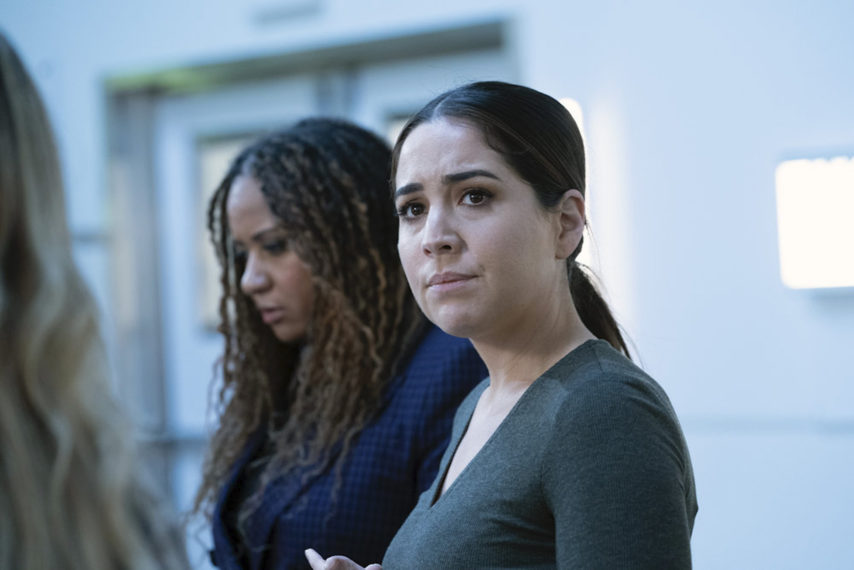
(Barbara Nitke/NBC/Warner Brothers)
Zapata really struggled with losing Reade and those flashbacks were completely heartbreaking. We also saw how her in the field, tackling Ivy in the finale.
Zapata is kind of the character I always worry about the least. She is so resilient. She can handle just about everything. For us, she was the character that wanted a baby probably the least, so that’s why it was so interesting to see her grapple with that. I think she is going to be such a mom and we wanted to give a sense that her being a mom is not going to stop her being an incredible badass as well.
Looking back at the 100 episodes as a whole, how do you feel about it? Is there anything you wish you’d been able to explore more or that you wish you’d gotten to explore at all over the years?
No, what’s incredible about doing that volume on a TV show is we leave it all in the show. You don’t have a sense of, “oh, if I could only have done this.” It was a transformative time in my life. It was a very difficult show to make. It was so enormous. But I just feel deeply thankful for the literally thousands of artists and artisans that I was able to meet and work with and become friends with over these past five years. Overall, when I look back on it, I just feel a warm glow.
From TV Guide Magazine
Crime, Comedy & Convenience Stores: Unwrapping Hulu's 'Deli Boys' With the Cast
Cupcakes, corndogs…and cocaine?! Two brothers find themselves in a hilarious pickle when they inherit an unseemly bodega biz in Hulu’s new comedy Deli Boys. Find out how The Sopranos and Real Housewives of Orange County influenced the cast. Read the story now on TV Insider.


